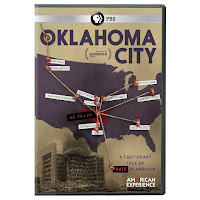the traveler's resource guide to festivals & films
a FestivalTravelNetwork.com site
part of Insider Media llc.
Reviews
Off-Broadway Reviews—The New Group’s “Evening at the Talkhouse” and “All the Fine Boys”
- Details
- Parent Category: Film and the Arts
- Category: Reviews
- Published on Thursday, 09 March 2017 13:13
- Written by Kevin Filipski
 |
| Matthew Broderick and Annapurna Sriram in Evening at the Talkhouse (photo: Monique Carboni) |
 |
| Isabelle Fuhrmann and Abigail Breslin in All the Fine Boys (photo: Monique Carboni) |
March '17 Digital Week I
- Details
- Parent Category: Film and the Arts
- Category: Reviews
- Published on Tuesday, 07 March 2017 15:54
- Written by Kevin Filipski
The Boyfriend
(Warner Archive)
(PBS)
One of the most accomplished if underrated British composers of the last century, William Alwyn wrote music in many genres—symphonies, chamber music, concertos, operas, solo piano and vocal works—but his music remains, except for a slew of welcome releases on Chandos in the ‘80s and ‘90s, relatively unknown. That even extends to the often imaginative and dramatic scores he wrote for more than 70 films throughout his career—he died in 1985 at age 79—and Chandos has already released fine recordings of several of his best scores.
This fourth volume, which includes his atmospheric suites (ably reconstructed and arranged by Philip Lane) for such ordinary British titles as On Approval and A City Speaks,continues the label’s winning streak of making this composer’s music available once again. Rumon Gamba conducts the BBC Philharmonic in exciting performances of works from ten different films.
Off-Broadway Review—Janie Dee Returns in “Linda”
- Details
- Parent Category: Film and the Arts
- Category: Reviews
- Published on Tuesday, 07 March 2017 02:35
- Written by Kevin Filipski
 |
| Janie Dee (right) in Linda (photo: Joan Marcus) |
Off-Broadway Review—Steven Levenson’s “If I Forget”
- Details
- Parent Category: Film and the Arts
- Category: Reviews
- Published on Thursday, 02 March 2017 04:42
- Written by Kevin Filipski
 |
| Jeremy Shamos, Kate Walsh and Maria Dizzia in If I Forget (photo: Joan Marcus) |
Although he trods familiar ground, Steven Levenson imbues his compassionate Jewish identity play If I Forget with fresh insights as the bickering Fischer clan hashes out its personal problems in the family home in Tenleytown, a Washington, D.C. neighborhood.
More Articles...
Newsletter Sign Up














